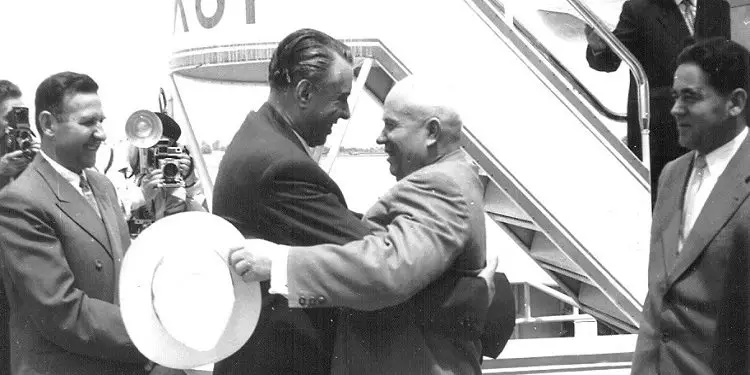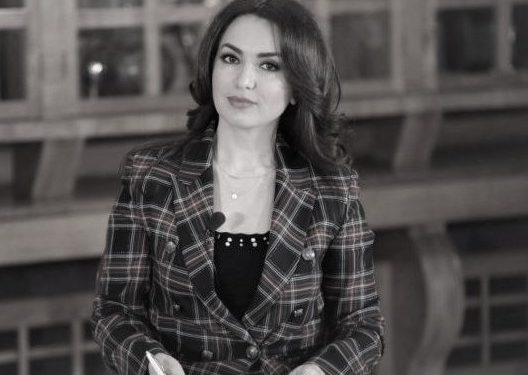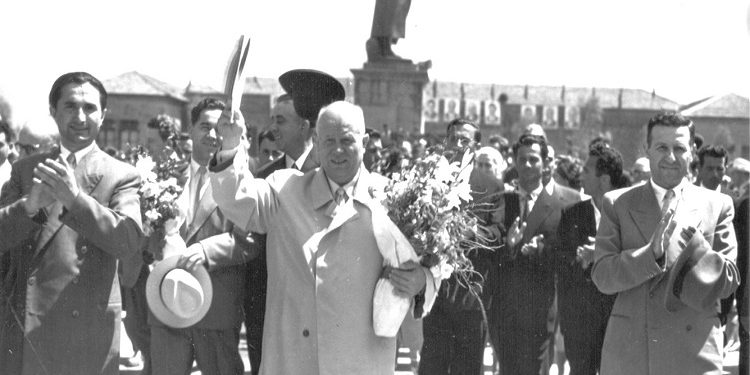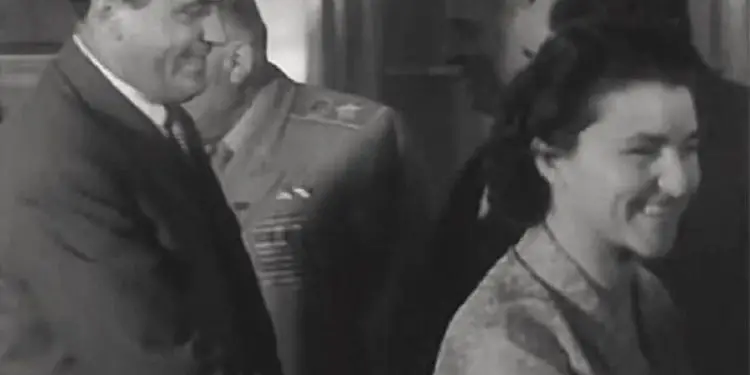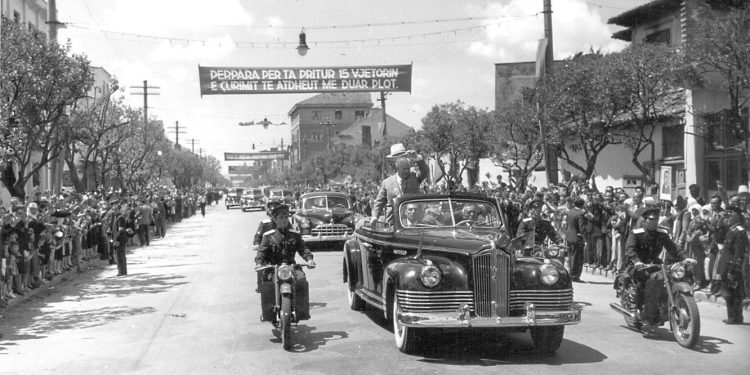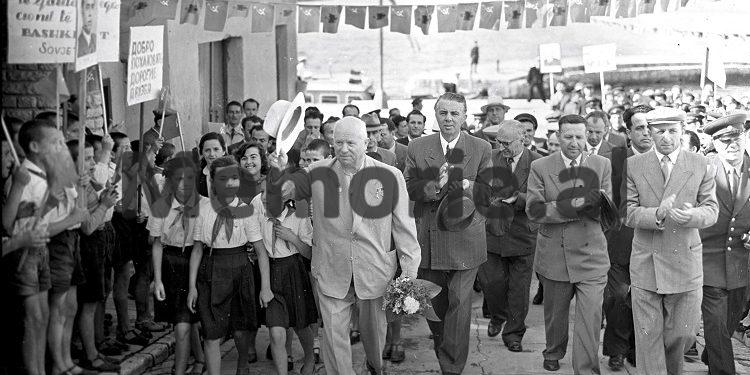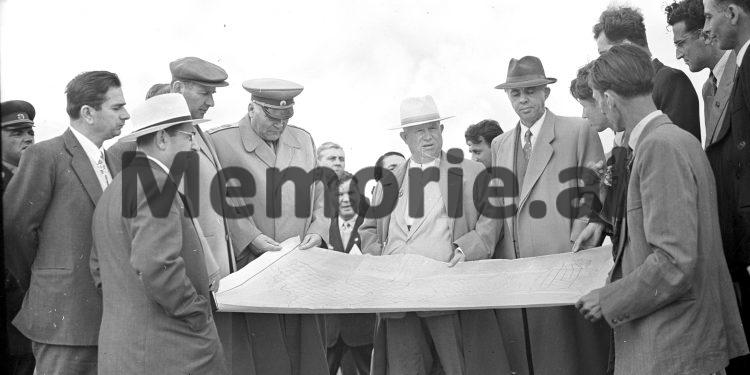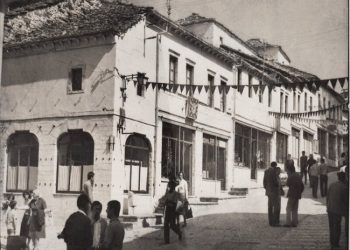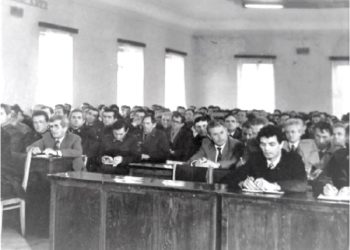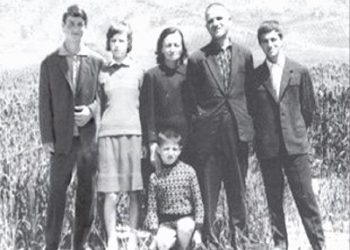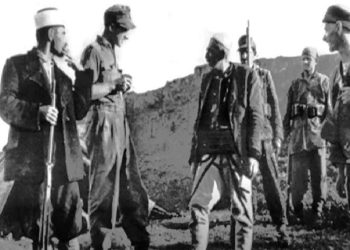Part Two
Memorie.al / Written at the time of his reflection and distancing himself from Stalin, in the memoirs of Nikita Khrushchev, the chapter on Albania also occupies an important place. When writing these memoirs, Khrushchev was able to perceive who Stalin really was, with whom he had been very close, but who, as he himself writes, had not managed to recognize before his death, the extent of his terrible crimes. Albania at this time had divorced the Soviets and had been thrown into the lap of China. These are time anchors that Khrushchev himself gives during his memoirs, while in the Albanian “Memoirs”, translated by Nikolla Sudar and published by “Ombra Gvg”, there is no information about the time and circumstances when Nikita Khrushchev kept these memoirs.
“The Albanians were lost from the break with the Soviet Union”
“The Albanian leaders willingly embraced the anti-Soviet policy, which Mao Zedong had proclaimed. There was no need to urge them, because, given the dangerous situation that had arisen for them after the 20th Congress of the Communist Party of the Soviet Union, they were prepared for it no less than the Chinese.
They understood what the essence of the attack on the cult of the individual was: it was directed against personal power, against the anti-democratic norms of life in the party and throughout the country. This frightened not only the Albanian leaders, but also beyond…!
But democratization certainly did not correspond to the practical activity of Hoxha, Shehu and Balluk. When relations between us soured and then turned into hostility, several Albanian comrades came to us, who, shedding tears, told us in detail what situation had arisen in their country and where they had fallen…! Their way it was very similar to the method that Stalin used.
This situation was caused in Albania by the fear of democratization of the country, by the fear of democratization of social and political life, a path that I considered inevitable. Precisely for this reason, the breakdown of relations occurred between us. What stages did the breakdown go through? First of all, we were informed that the Albanians were holding talks with the Chinese, directed against the Communist Party of the Soviet Union and other sister parties.
We did not have other facts before. At this time, an Albanian delegation was returning from China through the Soviet Union. An Albanian, a very honest woman, came to our Central Committee. I think that they have already eliminated the poor thing.
The Gestapo had not managed to eliminate her, while the “brothers” settled accounts with her and eliminated her, because as a sincere communist she came to us in the Central Committee, and told us what the Chinese had talked about with the Albanian delegation and how these latter had come to an agreement with them.
Given our naivety, as soon as they found out about this, we ran to Mehmet Shehu, who was then being treated in our hospital. We told him everything and asked him how it was possible for such talks to take place in China. In fact, Shehu left the hospital in a hurry and at that very moment flew to Albania. The final break occurred at the next Congress of the Communist Party of Romania…!
Now I don’t remember the name of the representative of the Party of Labor of Albania at the Bucharest Congress. Meanwhile, I asked him: “How is it? He answered me: Comrade Khrushchev, I myself don’t understand anything, but I have received the directive to support the Chinese”…! And when in 1960 they gathered in the Kremlin for a consultation of all the communist parties and other sister parties, Hoxha gave a speech with anti-Soviet accusations. He showed us his teeth harder than the Chinese themselves…!
The Albanian leaders, with their methods of secret and open executions, created a party, which was held together only by fear. They could not accept the decisions of the XX Congress of the Communist Party of the Soviet Union, because in the fight against the CPSU, like the Chinese, they raised the name of Stalin high. Stalin – the true ideal for them!…
This, of course, was the real tragedy of the Albanian people. I do not know that the Albanians have emerged victorious from all this, but I think that they have emerged defeated: “We cut off all aid to them and tore up all agreements….”!
The conflict over submarines that could have opened a war between the USSR and Albania!
Nikita Khrushchev also tells an episode from the last conflict of the Soviet Union with Albania. “We gave them 12 submarines, as I said and when our relations became strained. We decided to take all the submarines, as well as the equipment that accompanied them. The Albanians opposed this.
I think that in three submarines the crew was entirely Albanian; in one or two it was mixed. We were able to remove eight or nine submarines and three or four remained in Albania. We even expected aggressive actions from the Albanians, so when we withdrew the submarines, our warships, I don’t remember how many, were near the Albanian coast to intervene if the need arose.
If the Albanian authorities tried to keep our submarines by force, then our warships would threaten them.” He concludes his recollections about Albania, adding that this episode also marked the complete rupture with Albania.
Nikita Khrushchev on Enver Hoxha: “Harsh, angry character”!
Speaking about the rejection made by the leaders of the Albanian state and the Party of Labor of Albania, of the proposals of the Soviet Union for the normalization of Soviet-Yugoslav relations, Nikita Khrushchev writes in his memoirs that the Albanian side expressed a malicious tone.
“Enver Hoxha was especially angry. He has a harsh character and when he talks about what he does not like, his face seems to get tense and his teeth almost break out”, – describes the anger of the Albanian dictator Khrushchev.
Nikita Khrushchev on the troika of Enver Hoxha, Mehmet Shehu, Beqir Balluku: “The trio that committed terrible crimes”!
In his memoirs about Albania, Nikita Khrushchev also speaks of what he calls the troika of Albanian leaders and which consisted of Enver Hoxha, Mehmet Shehu and Beqir Balluku. Khrushchev writes that Tito had told him that the main leader of the Communist Party of Albania had been a very good friend, whom the Yugoslavs knew and supported and who came from the ranks of the working class and was the real organizer of the Communist Party of Albania.
“But Hoxha, Shehu and Balluku organized a conspiracy against him, and it was even said that Shehu had personally killed this man. Before long, we were informed of other terrible cases: someone was killed and someone else was secretly killed. There, such a system was applied: if someone made a mistake and Hoxha, Shehu and Balluku ascertained this, then the three of them together gave the punishment.
It was enough for the three of them to agree that this person was harmful and they found a way to secretly eliminate him, so this person disappeared without delay. All this was very similar to the method used by Stalin. Through Beria and other such people, he managed to eliminate many honest people”, – writes Khrushchev.
Khrushchev on Boris Pasternak’s book: “I do not forgive myself for banning ‘Doctor Zhivago'”
“Remembering the fate of the book “Doctor Zhivago”, I do not forgive myself for banning it in our country. I am guilty of not acting as I did with the book “The Blue Notebook”. The difference (although it cannot justify me) lies in the fact that I had read the “The Blue Notebook”, and that I had seen with my own eyes the stupidity of the censorship. I demanded that the Presidium of the Central Committee explain itself.
But they proved to be hesitant, even ridiculous, and we eliminated their police maneuvering without much difficulty. While I had not read “Doctor Zhivago”, in fact, no one in the leadership had even glanced at it. We banned the book, trusting the one who was charged with the task of evaluating works of art. This very ban brought us a lot of bad things, directly damaging the Soviet Union.”
Khrushchev on Stalin: “He didn’t listen to anyone but himself”!
Many people ask what Stalin was like as a person, what his vices and leadership style was. In the minds of many citizens, there is uncertainty about Stalin, because he is spoken of both well and badly. This has been the case and will probably remain so for many historical figures.
My conclusions are based on a close and long-term relationship with Stalin before, during and after the war. I was able to observe how he assessed various events, his actions and his personal role in the war…!
Stalin remains a Marxist in principle, but not in concrete deeds, and if we exclude his morbid distrust, cruelty and treachery, he analyzed the situation accurately and lucidly…!
The point of view, according to which only Stalin’s personality led the country out of the crisis and that the army won as a result of his genius leadership, is completely unfounded. The army would have won even without Stalin, even with fewer losses…!
In principle, Stalin remained faithful to the ideas of socialism, but in his nature he was a dictator, he was a man who did not listen and did not want to listen to anyone except himself. This was a peculiarity of his personality.
If such a trait is in the nature of a small person, the family and neighbors suffer. But when it is a quality of a person who occupies a high position, then the people suffer…!
All people who did not agree with him, Stalin labeled “enemies of the people”, who wanted to return the old rules. Something for which “these enemies” would have entered into an alliance with international reaction. For this reason, several hundred thousand honest people were executed…! /Memorie.al




